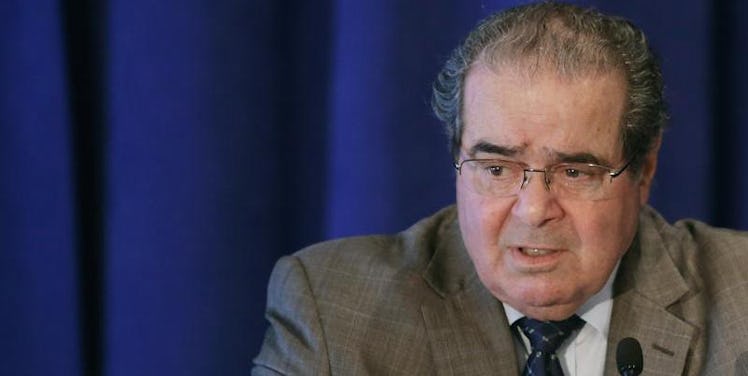
Why Scalia Saying Affirmative Action Hurts Black Students Is Dead Wrong
The Supreme Court was hearing arguments about affirmative action on Wednesday on the Fisher v. University of Texas case, which is coming back for a second round at the Supreme Court.
The case is that Abigail Fisher, a white woman, was denied acceptance at the University of Texas because of her race.
UT argued that if they do not use race as a factor in admissions, a majority of students would be white.
(Full disclosure: I learned about this case in a class from Lee Bollinger, the defendant in the Grutter v. Bollinger case that served as precedent in Fisher v. Texas and found affirmative action to be acceptable for promoting diversity.)
Hearing the arguments, Justice Antonin Scalia said:
There are those who contend that it does not benefit African Americans to get them into the University of Texas where they do not do well, as opposed to having them go to a less-advanced school, a slower-track school where they do well.
He later said:
I don't think it stands to reason that it's a good thing for the University of Texas to admit as many blacks as possible.
.@ctsotsoros THIS IS RACISM. Any way you cut it. No spin. Or are you going to tell me I'm illiterate now? pic.twitter.com/BaPz5118nc — Rashida Jones (@iamrashidajones) December 9, 2015
Essentially, Scalia was making the point that black students who would not have otherwise been accepted into higher tier schools like UT should not be accepted on affirmative action, because it will be too hard for them and they will not do well.
This "mismatch" point has been made before. Richard Sander, a law professor at UCLA, has been arguing it for years.
In 2005 Sander published a paper purporting to show that black students who would not have otherwise been accepted into higher tiered law schools do worse in classes and are thus less likely to pass the bar exam, so affirmative action hurts black students.
Ian Ayres and Richard R.W. Brooks from Yale Law School wrote a paper in response, refuting Sander's claims.
Their study found that black students with the same entering credentials were actually more likely to become lawyers if they went to a higher ranked law school than a lower ranked law school. This is the opposite of what Sander and Scalia said should happen.
By the way, this was true for white students, too. Ayres and Brooks wrote:
When students are overmatched by their classmates, they appear to be carried along to more success.
While students at higher ranked schools might do worse in class, they're still more likely to pass the bar and become lawyers.
Ultimately, Ayres and Brooks concluded, the smaller number of black lawyers and the lower law school grades for black students could not definitively be blamed on affirmative action. Instead, they said, educators need to look at other institutional factors.